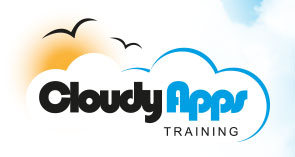


Introduction to Parallel Programming with OpenMP and MPI
Duration: 5 Days
Course Background
MPI is a language-independent communications protocol used to program parallel computers. It supports both point-to-point and collective communication protocols. MPI "is a message-passing application programmer interface, whose underlying design goals are high performance, scalability, and portability. MPI is widley used in high-performance computing applications. MPI is commonly used for parallelism between nodes and is often combined with OpenMP for parallelism in shared memory multi-processor systems running on a single node. The aim of this course is to provide an intensive overview of using both MPI and OpenMP together and a discussion of how these kinds of techniques can be deployed effectively in the cloud.
Course Prerequisites and Target Audience
Attendees should be experienced C/C++ programmers with a sound knowledge of
- Pointers and pointer operations
- Computing using multidimensional arrays
- File I/O and file and directory manipulation
- Data structures and classes
- Collection classes such as linked lists and vectors
- Multithreading
- Memory allocation and memory management
- Computer architectures and instruction sets
- Basic techniques for code profiling and code optimisation
- Code debugging
- Sockets programming and distributed computing
Course Outline
- Introduction to Parallel Architectures and Programming Models
- Introduction to MPI
- MPI Process model
- LLNL MPI Implementations and Compilers
- Point to Point Communication Routines
- General Concepts
- MPI Message Passing Routine Arguments
- Blocking Message Passing Routines
- Non-Blocking Message Passing Routines
- Collective Communication Routines
- Derived Data Types
- Group and Communicator Management Routines
- Virtual Topologies
- Domain decomposition of structured and unstructured grids
- Parallel debugging
- Shared Memory Parallelization with OpenMP
- Introduction and execution model
- Work sharing directives
- Data environments
- Verifying OpenMP parallelizations
- OpenMP Performance tuning
- Combined MPI and OpenMP programming
- Models for Parallel Programming on Hybrid Systems
- Running OpenMP on clusters or clusters of SMP Nodes
- MPI-2 Parallel file I/O
- Implementing a Scientific Computing Environment Using OpenStack
- Overview of Cloud Computing and OpenStack
- Building an HPC Cluster using OpenStack and MPI